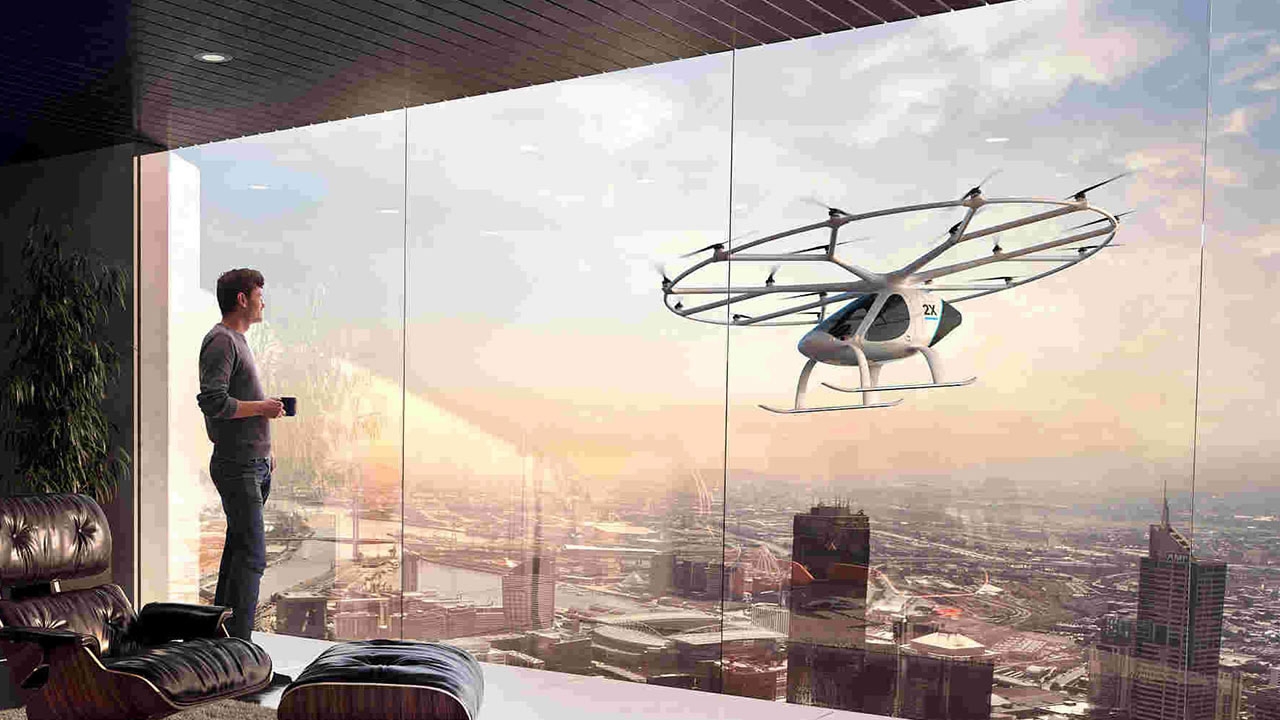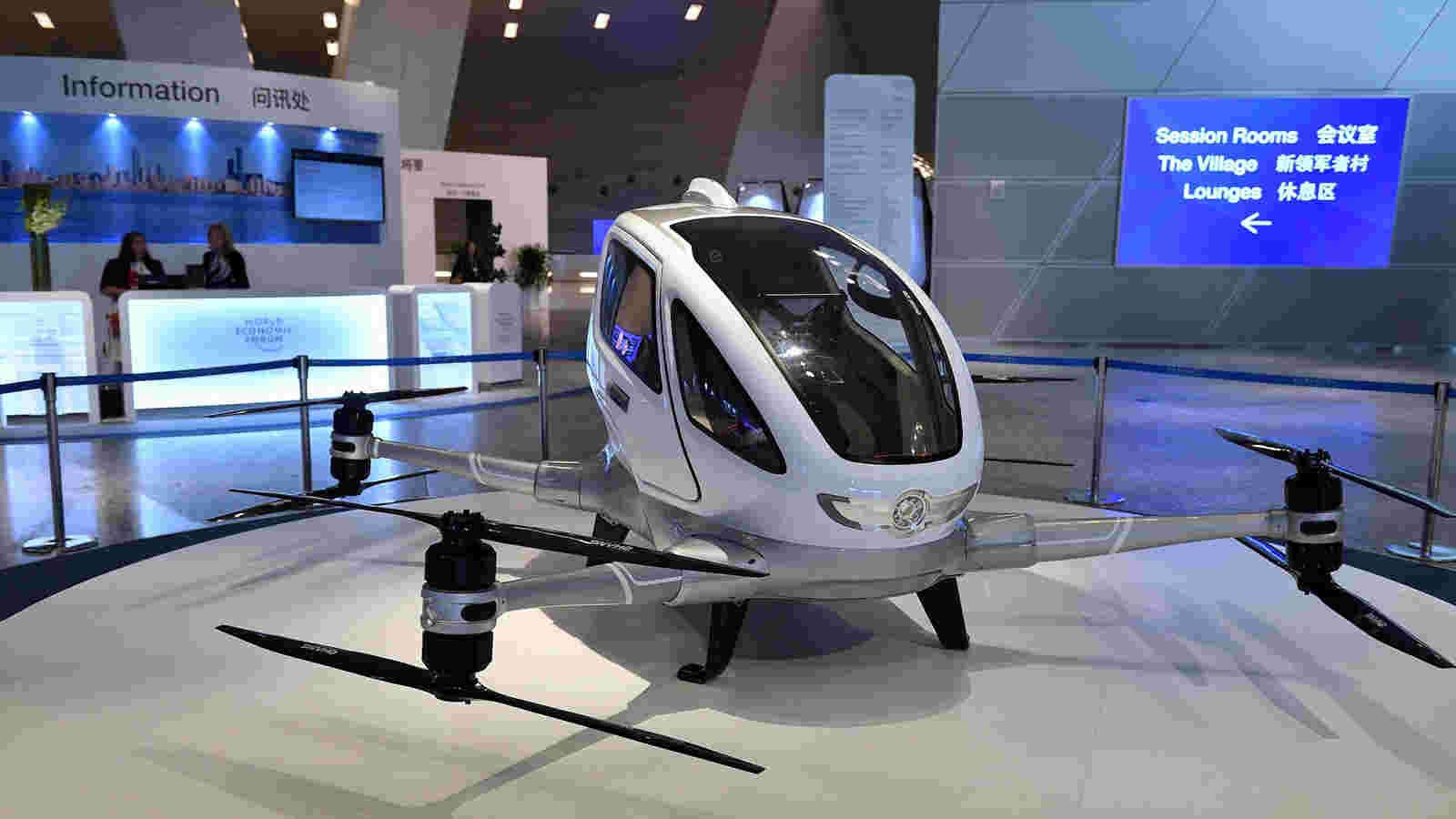
World
18:20, 27-Sep-2017
Flying cabs no fiction in Dubai
By CGTN’s Nawied Jabarkhyl

Dubai has launched a test flight for what it says will become the world’s first flying taxi service to ferry people across the sky. Authorities there are looking to roll out taxi drones across the city within the next five years.
“There’s a lot to be done in five years in terms of infrastructure, technology and others, because we cannot risk people’s lives like this,” said Director General of Roads and Transport Authority (RTA Dubai) Mattar Al Tayer.

Volocopter’s latest model, the Volocopter 2X, is scheduled to be put into use in Dubai by the end of this year. /VCG Photo
Volocopter’s latest model, the Volocopter 2X, is scheduled to be put into use in Dubai by the end of this year. /VCG Photo
The drone, which has a maximum flight time of 30 minutes at the moment, is being developed by German firm Volocopter.
But the race to make cabs fly is gaining traction.
Several global companies – including Airbus and Uber – are creating similar products that could transform short-distance travel.
Volocopter CEO Florian Reuter said their product will manage to come to users autonomously and then fly them to wherever they want. More interestingly, the whole process will be operated from a smartphone app.
It may seem like a vanity project or a publicity stunt, but officials in Dubai are investing heavily in such innovative technologies. The city’s ruler wants a quarter of all journeys in Dubai to be driver-less by 2030.

The Ehang 184 is developed by Chinese drone maker Ehang. /VCG Photo
The Ehang 184 is developed by Chinese drone maker Ehang. /VCG Photo
Dubai is also working with Chinese drone maker Ehang, following an agreement signed in February. The company last year launched the world's first autonomous aerial vehicle, the Ehang 184, and has already put it into operation in Dubai.
There are still concerns about the safety of these autonomous drones. Some say the drones may be safe and mature from a mechanical point of view, but their software parts are adding to risks.
“When it comes to software engineering, there is no way to actually verify it. Because, by definition, software always has vulnerabilities, because the software is being engineered by humans,” said Matt Suiche, founder of Comae Technologies.

SITEMAP
Copyright © 2018 CGTN. Beijing ICP prepared NO.16065310-3
Copyright © 2018 CGTN. Beijing ICP prepared NO.16065310-3